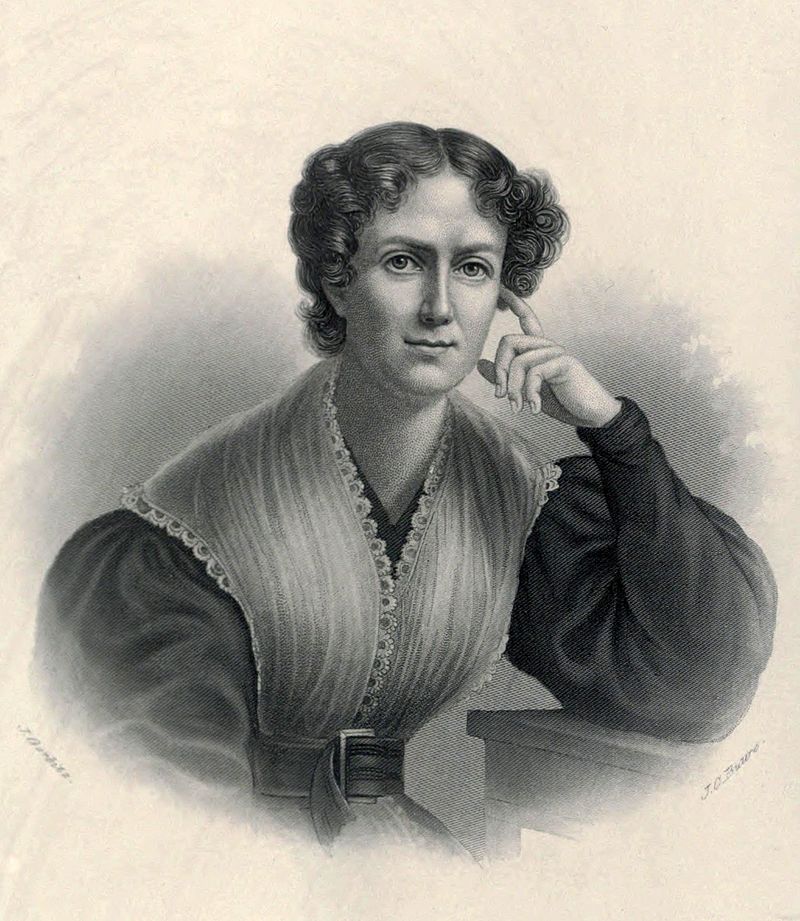
Frances Wright
Social Refrmer and abolitionist
Frances Wright (September 6, 1795 – December 13, 1852) also widely known as Fanny Wright, was a Scottish-born lecturer, writer, freethinker, feminist, abolitionist, and social reformer, who became a U. S. citizen in 1825. That year she founded the Nashoba Commune in Tennessee as a utopian community to prepare slaves for emancipation, intending to create an egalitarian place, but it lasted only three years. Her Views of Society and Manners in America (1821) brought her the most attention as a critique of the new nation.
Wright traveled to the United States in 1818 at the age of 23, and with her younger sister toured the country for two years before returning to Scotland. She believed in universal equality in education, and feminism. She attacked organized religion, greed, and capitalism. Along with Robert Owen, Wright demanded that the government offer free boarding schools. She was a fighter for the emancipation of slaves and for birth control and sexual freedom for women.She wanted free public education for all children over two years of age in state-supported boarding schools.She expressed through her projects in America what the utopian socialist Charles Fourier had said in France, "that the progress of civilization depended on the progress of women."
Wright was the co-founder of the Free Inquirer newspaper. She wrote Views of Society and Manners in America (1821) and A Few Days in Athens (a defense of the philosophy of Epicurus) Her publication of Views of Society and Manners in America was a major turning point, as it brought her new acquaintances, and led to her return to the United States, where she became established as a social reformer. It is a significant example of the Eighteenth-century humanitarian outlook confronting the new democratic world. It was translated into several languages and widely read in Great Britain, the United States and Europe.
In 1824 and 1825, Wright again visited the United States, accompanying the Marquis de Lafayette during much of his famous tour of the United States. As Lafayette headed South in February, Wright headed west towards Robert Owen and the community he had established at New Harmony, Indiana. They met back up in New Orleans in April 1825, and traveled north along the Mississippi River.
In the fall of 1825 Wright founded the Nashoba Commune near Memphis, Tennessee, where she planned to educate slaves to prepare them for freedom. Wright hoped to build a self-sustaining multi-racial community composed of slaves, free blacks, and whites.Nashoba was partially based on Owen's New Harmony settlement, where Wright spent a significant amount of time. Nashoba lasted about three years until Wright became ill with malaria and moved back to Europe to recover. The interim managers of Nashoba took a more strict approach in terms of work requirements. In addition, they were worried about rumors of inter-racial marriage, which damaged financial support for the community. By Wright's return in 1828, the community had collapsed financially. In 1830, Wright freed the Commune's 30 slaves and arranged for their transport, accompanying them to Haiti, which had achieved independence in 1804.There they could live their lives as free men and women.The modern-day city of Germantown, Tennessee, a suburb of Memphis, is located on the land of Nashoba.
Wright's opposition to slavery contrasted with many other Democrats of the era, especially those of the South. At the same time, her activism on behalf of workingmen distanced her from the leading abolitionists of the day. In 1833–36, her lectures upon slavery and other social institutions attracted large and enthusiastic audiences, and led to the establishment of what were called "Fanny Wright" societies. Her visits were subsequently extended to the principal cities of the United States, but the enunciation of views similar to those contained in her Few Days in Athens met with very decided opposition.
Around 1838,Wright married a French physician, Guillayme D'Arusmont, with whom she had one child: Frances Silva D'Arusmont. The daughter married William Eugene Guthrie, a member of an old established Forfarshire family in Scotland. Wright and D'Arusmont later divorced.
As an activist in the American Popular Health Movement between 1830 and 1840, Wright advocated for women being involved in health and medicine. In 1836 she published her last book, Course of Popular Lectures.
After the mid-term political campaign of 1838, Wright suffered from a variety of health problems. She spent her last years in retirement at the residence of her daughter. She died in 1852 in Cincinnati, Ohio, from complications resulting from a fall on an icy staircase. She is buried at the Spring Grove Cemetery in Cincinnati.
To make your own nomination download the nomination form here